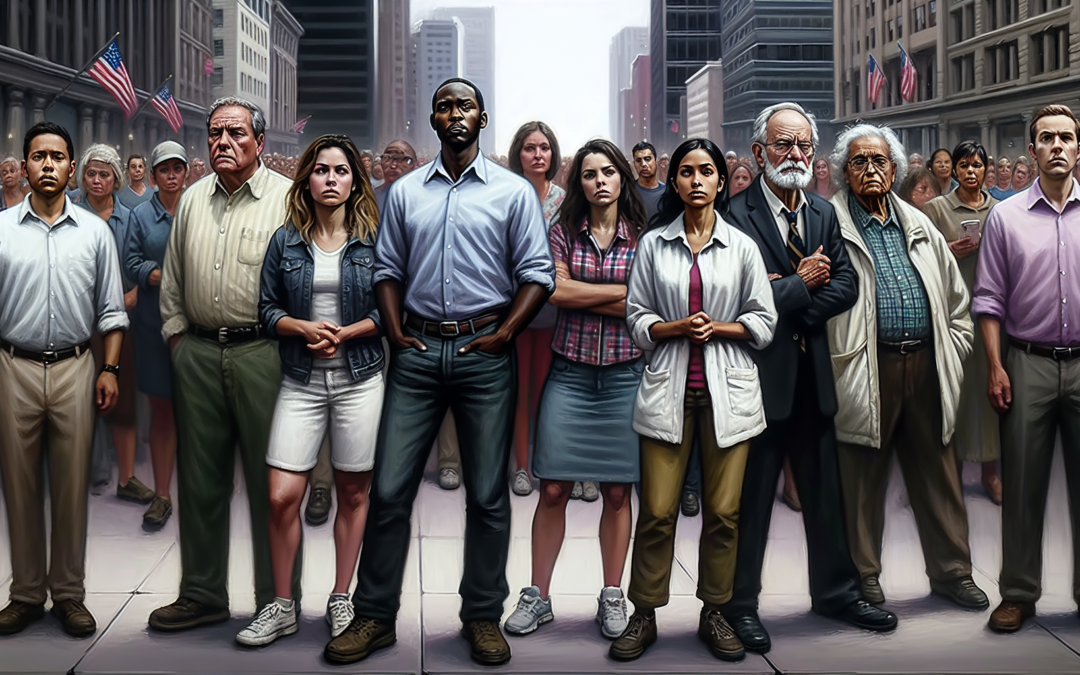Voices from the Frontline: The Law Enforcement Perspective on Frauditors and Social Media Pranksters
In the ever-evolving landscape of modern media, social platforms have sadly morphed from spaces meant for connection and community-building into volatile arenas of deception and chaos. The battlefield is no longer confined to physical territory alone—it expands, reaching every corner of cyberspace. Navigating this minefield are the courageous men and women in law enforcement, whose badges and oaths are constantly tested by a series of trials emanating from the phenomenon of “frauditing.”
Frauditors, a crossbreed of auditors and fraudsters, wield cameras not just for transparency but for editing narratives that provoke and inflame. They stand defiant, often at the periphery of legal technicalities, capturing moments of confrontation with officers and spinning them into viral sensations. These engagements, which begin under the pretense of public accountability, too often culminate in chaos, friction, and a populace anxious about the spectacle of defiance rather than truth or safety.
For those who carry the weight of observance—the police—each day opens into a realm of unpredictability. Frauditors deploy not just cameras but words as if they’re ammunition, constantly pushing to elicit reactions that might fan their follower counts. In this scenario, restraint becomes both armor and prison, demanding emotional fortitude that goes largely unrecognized. As officers, their dedication walks hand-in-hand with the terrifying awareness that an honest misstep can turn them into detrimental headlines.
It’s easy for the casual observer to misinterpret these encounters as mere gadgets of entertainment. Yet, for law enforcement, each encounter presents a dichotomy—serving to protect, while simultaneously holding onto the ethical codes that such agents of discord would chip away. This is a dilemma that tests moral fiber every single day. The resulting stress, compounded by pranking spectacles that delight social media more than educate it, leaves officers caught not in control, but boxed in by the lens of those with partial intent.
The unrest and peril these staged encounters fuel lie beyond just the trappings of comedy or spectacle. They erode trust, making communities skeptical of their own guardians. When officers are repeatedly cast as antagonists in scenarios brewed from orchestrated provocations, public sentiment hovers dangerously close to resentment rather than respect. The tragedy of this spectacle, when intertwined with real-world issues like heightened criminal activities or even genuine misconduct, widens an already-growing chasm, leaving in its wake fractured streets and arteries of community engagement festered with mistrust.
Amidst these challenges, it is inspiring to witness officers whose persistence does not waiver. They emerge resilient, refusing to tarnish their noble duty in the face of strategic deceit. Every casual smile, authentic assistance, and sustained effort to connect with members of their community stand as staunch counterpoints against this noisy backdrop. Many seek solitude beyond the sirens, participating in outreach projects, building youth programs, and frequently volunteering off-patrol, for the pure purpose of helping sow fields of genuine safety and camaraderie.
Nonetheless, the psychological toll cannot be understated. Trauma arises not only from direct encounters with frauditors and pranksters but also from the nagging concern that these portrayals might fuel unwarranted hostility towards law enforcement long after the cameras are gone. In an age where mega corporations capitalize on click-driven ad revenues, the individual stress and sacrifices officers make despite negating sensational storytelling are nearly invisible. Conditioning oneself to “brush it off” is unlikely the answer; more proactive measures aimed at mental well-being and practical training could be pivotal.
As concerned citizens derive entertainment or disorientation from curated images of conflict, we remind you to ask—at what cost does amusement levied through exploitation impact those sworn to safeguard? What level of distortion is permissible before collective accountability wanes? We must force these questions into public discourse, focusing on truth and unity rather than division.
Stay vigilant—through honorable efforts, transparency continues to manifest organically, though more benignly amid our society. Empower these stances through reasoned dialogue and action frameworks that stimulate clarity and preempt these false dichotomies—drawing wisdom to carve clearer paths outside of targeted dissent.
For more insightful conversations on issues such as these, listen to The John Ligato Show where they explore the intricate tapestry connecting law enforcement challenges and public perception, further unveiling the broad layers that animate this growing dialogue Episode on frauditors and pranksters. Stay connected through their Facebook page for updates and additional engagement opportunities.
In leveraging emerging vulnerabilities for clicks, both frauditors and prank-preneurs reshuffle our core dialogues away from needed conversations toward a distorted collective gaze. Let us reclaim our narrative with integrity as our unwavering resolve appoints guardians not catalysts for spectacles—a worthy stand for every man, woman, and child who seeks justice honed with humility.

Recent Comments